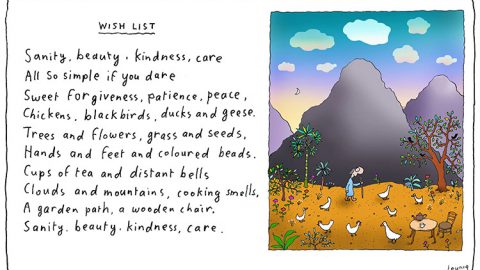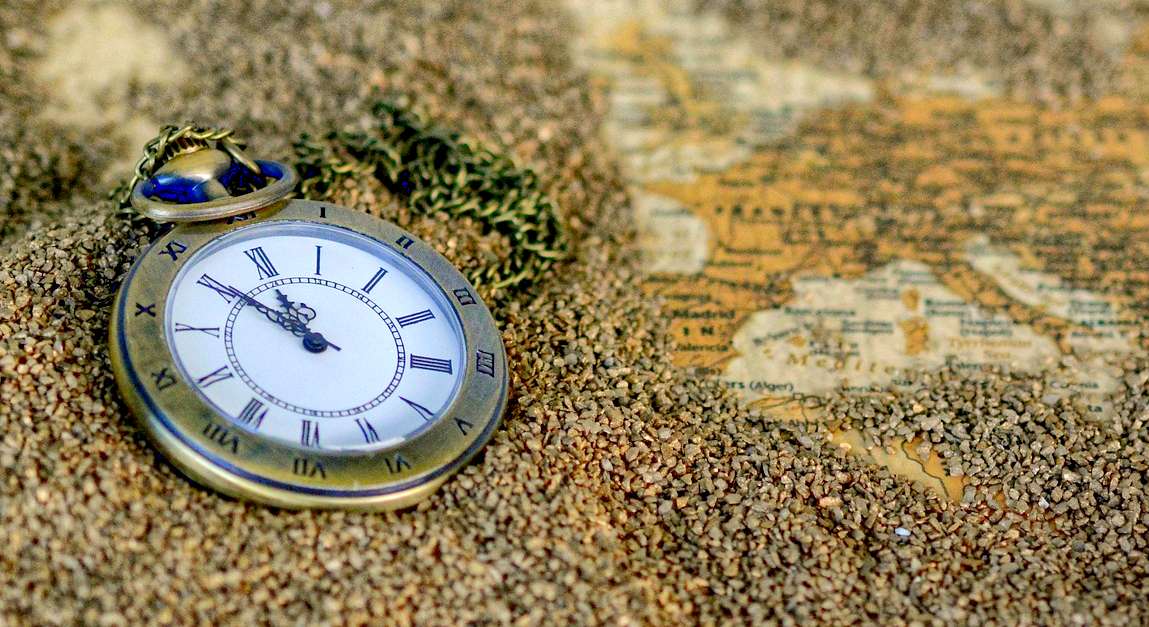Have you ever felt overwhelmed? So much to do, yet so little time. Our stress level rises. Tension mounts. We try to step back and assess the big picture and that just creates even more stress as we think, “I’ll never be able to do all of this.” When we feel the pressure of being overwhelmed we often react to our feeling state (anxiety, panic), and that can result in poor choices of what we do next and how we use our time.
I’m no stranger to feeling overwhelmed. I travel regularly, and find that travel creates opportunities for overwhelmingness on both the front and back end. I’m overwhelmed with everything that has to be done before I go. And then, after an absence of 7 or 8 days, I’m overwhelmed with what’s waiting for me when I return.
Some people, when faced with such circumstances, make lists. Lists can be useful, but they also present several potential pitfalls:
- Making a list can become a way to avoid actually doing the things that need doing;
- When faced with a long list we tend to do what is quick and easy and what we know how to do. We also tend to favor tasks we enjoy while sending those we don’t enjoy to the back of the line.
Here’s an alternative to the traditional list making approach. It’s more of a triage approach, but uses four categories, rather than three. It’s based on a simple and rather time-tested concept of tasks being important and/or urgent. Here’s how it works:
You’re thinking about everything that you have to do and feeling a bit overwhelmed. Take out a large sheet of paper and divide it into four quadrants as I’ve done below: The vertical axis represents the idea of “importance.” The horizontal axis represents the idea of urgency. When you marry these concepts you get four categories :
Now think about what needs to be done and place each task in one of these quadrants. What makes something important? Consider the task from a long term standpoint. Will getting this done be seen as meaningful and significant one year from now? Two years from now? Does the task relate to your fundamental values and goals? Is there a great risk or cost to not doing this task? Your income tax return may be important because not doing it creates a reasonably high risk. Setting up a party for your dad’s 80th birthday may be important because it may be valued and remembered for years to come. As you sort through your tasks, you’ll have to make some value judgments about what’s important and what isn’t.
Urgency is a different question. The urgent stuff often crowds out the important stuff. Urgency is the email that just popped into your box or the phone ringing. It’s the person who needs something from you right away. Urgency is often felt as a pull to something that isn’t very important; the need to check the news on your computer or call a friend on your cell phone.
Some of your tasks are both urgent and important. These require immediate attention. Our biggest problem areas are usually tasks that are important, but not urgent (Quadrant 2). These tasks often get the least attention. Having no deadline, and absent a sense of crisis, we simply put them off while we attend to the other 3 quadrants.
But to make our lives more meaningful and more productive, we need to shift energy away from the urgent and towards the important. Consider it from another perspective – if there are tasks to be left undone, would you rather they be those that are important or those that are urgent? For many of us, the graveyard of unfinished or unstarted tasks is mostly populated by the important-but-non-urgent.
Once you have sorted through your overwhelming list of things to do, you need to start doing it. For the next 24 hours, don’t give any time and energy to anything that isn’t listed as important. If you finish something, cross it off the list. If you work on something, but don’t finish it, put a small check next to it to show that you spent some time moving forward. Devote yourself to what is truly important.
We are programmed into thinking that action is valued based on quantity. There may be a brief moment of satisfaction in seeing great numbers of items checked off your to-do list each day. But we’re simply confusing being busy with being productive. It’s not how much we’re doing, but what we’re doing that will ultimately contribute to our sense of fulfillment and meaning.
The other day my kids came home from school and our family sat in the living room and briefly shared the highlights of our day. My highlight was playing a game of ping pong on the deck outside with my wife. I didn’t expect it to be the highlight. I even lost. But for 15 minutes we hit a little plastic ball under a late summer sun, surrounded by a symphony of birds and layers of hazy green mountains. We laughed and joked and playfully chided one another as we traded volleys. Nothing could be less urgent. And yet, very little is more important than my marriage.
Today, I hope we can play again. As I reflect on my marriage, my life and my time, a few minutes of ping pong with my wife seems somewhat important. Since I lost yesterday, the chance for a rematch has an added sense of urgency to it, as well.
Playing ping pong isn’t necessarily an antidote to feeling overwhelmed. But clarity of what’s important can lead to purposeful action. And action devoted to that which is truly important helps you sweep aside the clutter or urgency; leaving you with a sense of fulfillment that you are doing exactly what you need to do.
Gregg Krech is the Director of the ToDo Institute in Vermont and author of several books including Naikan: Gratitude, Grace and the Japanese Art of Self-reflection. He will be conducting the distance learning course, A Month of Self-reflection, beginning November 1, 2008.
Tags: anxiety Professional Members









